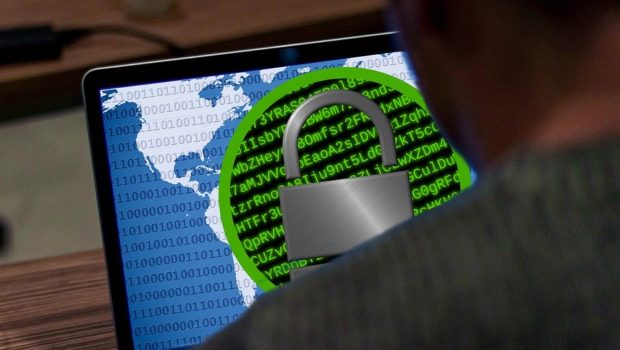How can you protect your business from cyber threats
The internet is the most valuable asset of the 20th century. It has opened new ways for people to look for information about whatever they desire. Although the internet can have many benefits, there will always be many risks involved when an individual goes online to search for something. There have been many cases where businesses and individuals have had personal information stolen and used against their will.
Regardless of who you are or whatever type of business you own, there will come a time when you will become a target for hackers eventually. A study stated that almost 81 percent of cyber-attacks occur on small or medium-sized businesses because they lack the funds and security measures required to deal with such attacks.
Most of these cyber-attacks on businesses occur due to insufficient, weak, or outdated IT security systems that do not provide a shield against them, allowing hackers to steal data and other valuable business information. This breach causes disruption and serious down-time in business operations. As small businesses have a higher risk of getting attacked, they should take extra steps to protect themselves against these cyberattacks. In any case, protection is a must, be it a small or a large business. If you want to know how you can protect your business from cyber threats, then you have come to the right place. Today, in this article, we will share some tips to protect your business from cyber threats.
- TRAIN YOUR EMPLOYEES
Vigilant employees are the best form of protection against data theft or security threats. Every employee should be aware of best practices such as email restrictions, how to deal with cyberattacks, and what information about their work they should discuss at home. It is your duty as s business owner to train your employees to keep your data safe and secure.
The use of training programs can be the perfect way to enforce your views regarding cybersecurity. You can offer them fully prepaid educational programs, like an online masters cybersecurity, so they have prior knowledge of what cyber threats are and how to deal with them.
- LIMIT EMPLOYEE ACCESS TO VALUABLE DATA
Providing limited access to your employees through cloud access control when it comes to your company’s valuable data decreases human errors, which are the primary source of information leakages. Your employees should only have access to only work-related data they need to complete their tasks. If an employee quits your company or transfers them to your other business location, ensure that you take preventative measures such as deleting passwords and collecting entry keys and badges. Taking such preventative measures will allow you to subdue the risk associated with a disgruntled ex-employee causing data leaks.
- UPDATE AND PATCH OPERATING SYSTEMS REGULARLY
If you have an operating system or application that you don’t patch or update regularly, it leaves open doors for hackers to attack every device that uses such an operating system or app. Software companies roll out updated security patches every once to provide better security against new viruses and cybersecurity threats. So, it is good to always keep your operating system, browsers, and applications up to date to ensure the latest security patch is present.
- SECURE WIRELESS NETWORKS AND ACCESS POINTS
You should install a wireless network router that has the latest security measures in place. These security measures include:
- Setting a strong administrator password.
- Setting the router up, so it does not display its SSID.
- Using WPA 2 (Wi-Fi protected access 2) password protection with AES (advanced encryption standard) encryption.
- The Avoidance of the WEP (wired equivalent privacy) protocol.
If you allow Wi-Fi access to your clients or customers, make sure it is from a separate wireless router and not from your business-related one.
- DISPOSE OF MEDIA AND OLD COMPUTERS SAFELY
Before you even think of donating or giving away your computers, you need to clean its hard drives to wipe all previously-stored business data. A good practice is to delete any business-sensitive data from old hard drives, CDs, and flash drives. After clearing all data, consider destroying these items by taking them to a shredding company.
If you have any sensitive business information on paper, destroy them with a cross-cut shredder or burn them with an incinerator. Removing all traces of your data will ensure that nobody will be able to use it against you.
- MONITOR THE USE OF EQUIPMENT AND WORK COMPUTERS
A good idea would be to keep an eye on all your work computers and software that your employees use. Ensure that they are not using them for forbidden work-practices. Educate your employees that they should not use removable storage on work computers as they may contain viruses and other unknown threats. Make sure that you remove any unwanted software or dispose of old equipment if you need it anymore. Don’t forget to wipe all sensitive information if you plan to throw it out. This equipment can sometimes become a back door for criminals to steal your valuable business information or use it for criminal activities.
- GET YOUR BUSINESS INSURED
You may want to get a cyber insurance policy to protect yourself and your business from cyber-attacks. The cost that goes into dealing with the aftermath of a cyber attack is usually more than just recovering your database, applying security measures, or replacing computers. Cyber liability insurance will provide you with the financial help needed to require from the aftermath of a cyber-attack. Like every insurance policy out there, you firstly need to find a company that offers cyber liability insurance. When you find one, ask them what they cover under the insurance policy program.
Final words
As small businesses invest very little to strengthen their cybersecurity, they are at the most risk of getting attacked by hackers. Following security measures such as keeping equipment up to date, and educating employees on how to use them can drastically reduce the risk of your business experiencing a cyber attack. Today, we have shared with you some tips on how to protect your business from cyberattacks. So, it is a good idea that you consider them to ensure that your business stays safe and secure.
Cover credits : Pixbay
















